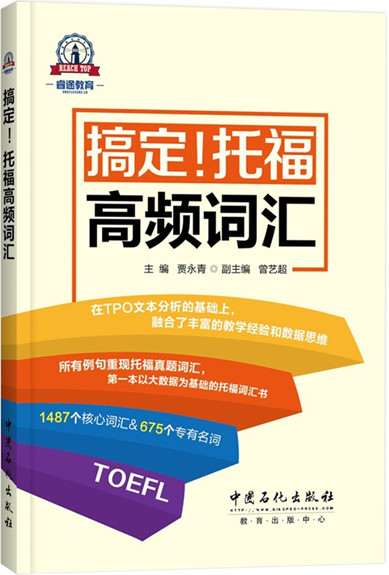Paragraph 6:The development of banking and other financial services contributed to the expansion of trade. By the middle of the sixteenth century, financiers and traders commonly accepted bills of exchange in place of gold or silver for other goods. Bills of exchange, which had their origins in medieval Italy, were promissory notes (written promises to pay a specified amount of money by a certain date) that could be sold to third parties. In this way, they provided credit. At mid-century, an Antwerp financier only slightly exaggerated when he claimed, “0ne can no more trade without bills of exchange than sail without water." Merchants no longer had to carry gold and silver over long, dangerous journeys. An Amsterdam merchant purchasing soap from a merchant in Marseille could go to an exchanger and pay the exchanger the equivalent sum in guilders, the Dutch currency. The exchanger would then send a bill of exchange to a colleague in Marseille, authorizing the colleague to pay the Marseille merchant in the merchant's own currency after the actual exchange of goods had taken place.
8. By including the quotation in paragraph 6 by the financier from Antwerp, the author is emphasizing that
○ sailing was an important aspect of the economy
○ increasing the number of water routes made trade possible
○ bills of exchange were necessary for successful trading
○ financiers often exaggerated the need for bills of exchange
9. According to paragraph 6, merchants were able to avoid the risk of carrying large amounts of gold and silver by
○ using third parties in Marseille to buy goods for them
○ doing all their business by using Dutch currency
○ paying for their purchases through bills of exchange
○ waiting to pay for goods until the goods had been delivered
Paragraph 7:Bills of exchange contributed to the development of banks, as exchangers began to provide loans. Not until the eighteenth century, however, did such banks as the Bank of Amsterdam and the Bank of England begin to provide capital for business investment. Their principal function was to provide funds for the state.
10. According to paragraph 7, until the eighteenth century, it was the principal function of which of the following to provide funds for the state?
○ Bills of exchange
○ Exchangers who took loans
○ Banks
○ Business investment
Paragraph 8:The rapid expansion in international trade also benefitted from an infusion of capital, stemming largely from gold and silver brought by Spanish vessels from the Americas. This capital financed the production of goods, storage, trade, and even credit across Europe and overseas. Moreover an increased credit supply was generated by investments and loans by bankers and wealthy merchants to states and by joint-stock partnerships - an English innovation (the first major company began in 1600). Unlike short-term financial cooperation between investors for a single commercial undertaking, joint-stock companies provided permanent funding of capital by drawing on the investments of merchants and other investors who purchased shares in the company.
11. The phrase an English innovation in the passage is closest in meaning to
○ a new development introduced by the English
○ an arrangement found only in England
○ a type of agreement negotiated in English
○ a type of partnership based on English law
12. According to paragraph 8, each of the following was a source of funds used to finance economic expansion EXCEPT
○ groups of investors engaged in short-term financial cooperation
○ the state
○ wealthy merchants
○ joint-stock companies
Paragraph 6:The development of banking and other financial services contributed to the expansion of trade. By the middle of the sixteenth century, financiers and traders commonly accepted bills of exchange in place of gold or silver for other goods. Bills of exchange, which had their origins in medieval Italy, were promissory notes (written promises to pay a specified amount of money by a certain date) that could be sold to third parties. In this way, they provided credit. At mid-century, an Antwerp financier only slightly exaggerated when he claimed, “0ne can no more trade without bills of exchange than sail without water." Merchants no longer had to carry gold and silver over long, dangerous journeys. An Amsterdam merchant purchasing soap from a merchant in Marseille could go to an exchanger and pay the exchanger the equivalent sum in guilders, the Dutch currency. The exchanger would then send a bill of exchange to a colleague in Marseille, authorizing the colleague to pay the Marseille merchant in the merchant's own currency after the actual exchange of goods had taken place.
13. Look at the four squares [] that indicate where the following sentence could be added to the passage.
They could also avoid having to identify and assess the value of a wide variety of coins issued in many different places.
Where would the sentence best fit?
14.Directions: An introductory sentence for a brief summary of the passage is provided below. Complete the summary by selecting the THREE answer that express the most important ideas in the passage. Some sentences do not belong in the summary because they express ideas that not presented in the passage or are minor ideas in the passage. This question is worth 2 points.
In late sixteenth-and early seventeenth-century Europe, increased agricultural production and the expansion of trade were important in economic growth
Answer choices
○ Bringing more land under cultivation produced enough food to create surpluses for trade and investment as well as for supporting the larger populations that led to the growth of rural industry.
○ Most rural villages established an arrangement with a nearby urban center that enabled villagers to take advantage of urban markets to sell any handicrafts they produced.
○ Increases in population and the expansion of trade led to increased manufacturing, much of it small-scale in character but some requiring significant capital investment.
○ Increased capital was required for the production of goods, for storage, for trade, and for the provision of credit throughout of Europe as well as distant markets overseas.
○ Bills of exchange were invented in medieval Italy but became less important as banks began to provide loans for merchants.
○ The expansion of trade was facilitated by developments in banking and financial services and benefitted from the huge influx of capital in the form of gold silver from the Americas.
- 12-24·托福阅读加试一般加几篇?
- 12-24·托福阅读解题技巧讲解
- 12-22·托福阅读插入题正确的解题步骤
- 12-22·托福考试阅读中插入题怎么解答
- 12-19·2019年托福阅读考试的两大陷阱
- 12-192019年托福阅读考试的两大陷阱
- 12-11托福阅读考试的时候要考几篇文章
- 10-19托福阅读得高分三种技巧,快来学习
- 05-032018年托福阅读考试中出现的常见高频词汇
- 04-242018年托福阅读常考话题类别梳理
编辑推荐
- 模拟试题
- 历年真题





